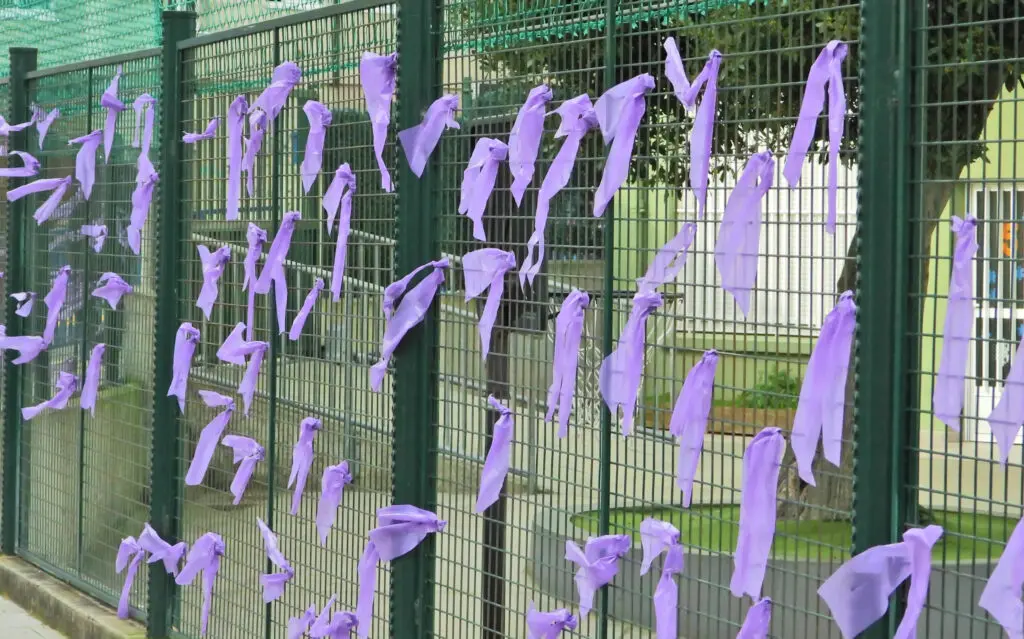Purple in Cycles

During the final week of domestic violence awareness month in October, I opened an event in my hometown of St. Louis, Missouri, with the poem “Purple in Cycles.” [1] [1] The event was sponsored by the Metro East St. Louis Committee Against Domestic Violence. In trying to speak to what experiences of abuse feel and look like, I came back to a form I’ve been exploring poetically—that of using repetition and line breaks to evoke a labyrinth.
As anthropologist Clifford Geertz so eloquently wrote about, we use symbols to evoke meaning. For me, labyrinths represent confinement, oppression, isolation, and entrapment. The feeling of being in a confined space in this poem symbolically speaks to victims of domestic violence. The refrain at the beginning of each strophe, or stanza, evokes similarities between people’s experiences—but the different stories show each individual’s unique situation and response. People manipulate the space of the entrapment for escape or for their own survival.
But labyrinths are meant to be traveled through. The journey is not static. I recall my dad would tell me, “Remember that everyone is coming out of something or going into something.”
There’s hope. Domestic violence is very real for people, but hope is very real for people too. Those in abusive relationships can get help. A child bullying other children at school may just need more resources. The beautiful woman with a Prana bag and sunglasses might be more ashamed of herself than you might think. But she can find freedom for herself. She doesn’t need someone else to “rescue” her. The man can find healing in counseling a young boy who has been abused. He can find a sense of balance, and the boy gets the care he needs to no longer reproduce the abuse.
People can symbolically, and literally, exit the labyrinth.
Purple in Cycles
The first time became habit
habit turned into rituals
rituals so frequent they were marked by time
time no one can ever get back—
back into a corner hidden
hidden from view is a child
a child who always knew violence
violence followed this child to school
to school packed away in memories
memories are all we have to reach
reach a place that is familiar
familiar like family, friends
friends are valuable because they listen
listen without trying to teach you
you should know the bully is somebody’s baby.
The second time became habit
habit turned into rituals
rituals so frequent they were marked by time
time no one can ever get back—
back, back into a corner hidden
hidden from view is a woman
a woman so beautiful looking for love
love found her vulnerable at the right time
time spent in someone’s arms
arms that once held, began to hurt
hurt her because she was beautiful
beautiful with a bruised eye is ugly
ugly is how she came to see herself.
The third time became habit
habit turned into rituals
rituals so frequent they were marked by time
time no one can ever get back—
back, back, back into a corner hidden
hidden from view is a man
a man so broken he can barely stand
stand shaken, unsure, beaten down
down into a place of sorrow
sorrow followed him everywhere
everywhere he felt defeated
defeated he found himself at school
school is his sanctuary, he met with a student
a student who confided in him
in him the man saw himself abused.
The child saw a woman in designer sunglasses
sunglasses hid her shame
shame given to her by someone unworthy
unworthy is how she felt until that day,
that day when she saw her beauty for the very first time
time she will never get back
back no more would she look but onward
onward into a place where pain remains in the past
the past no longer the chain keeping her captive
captive no more, she is free.































